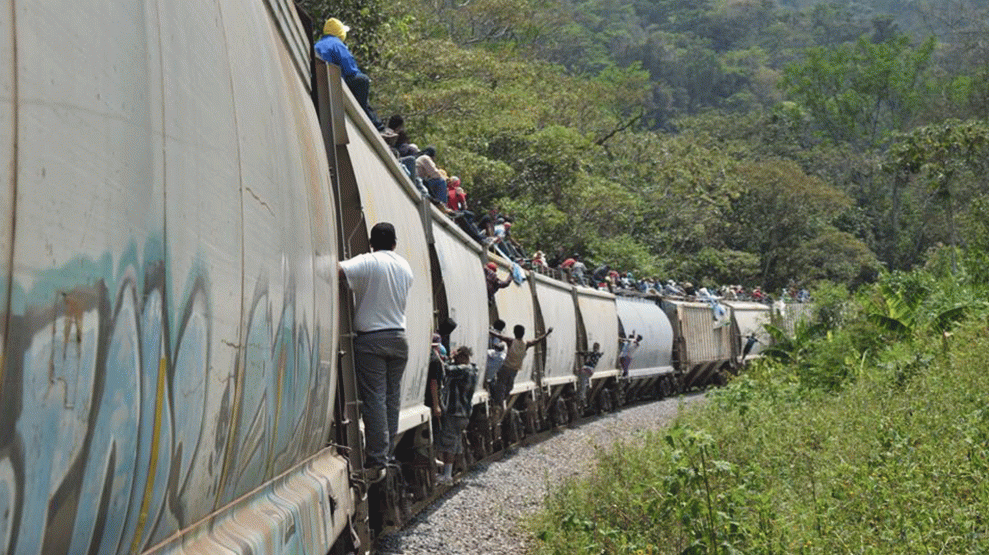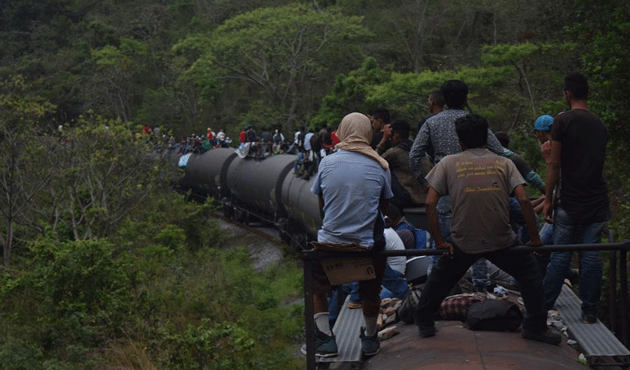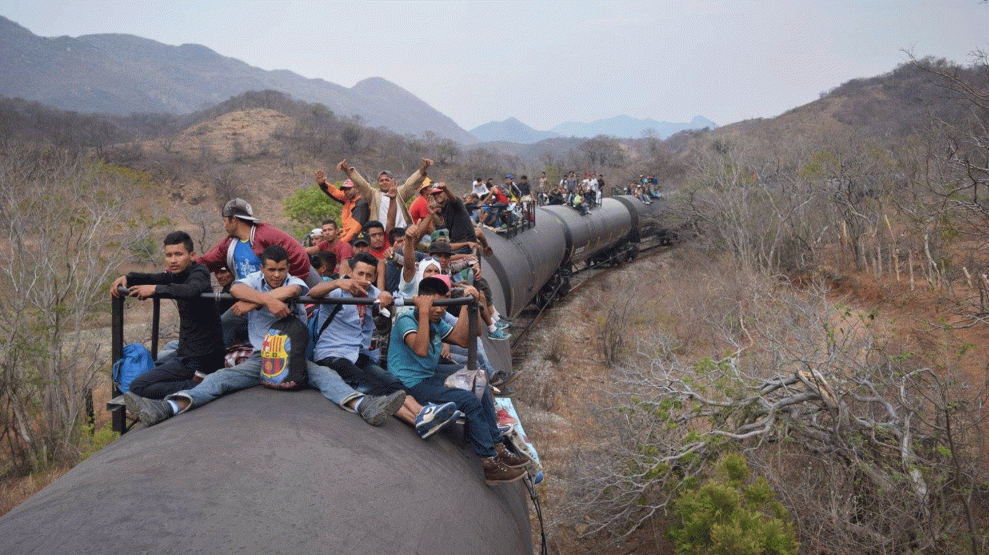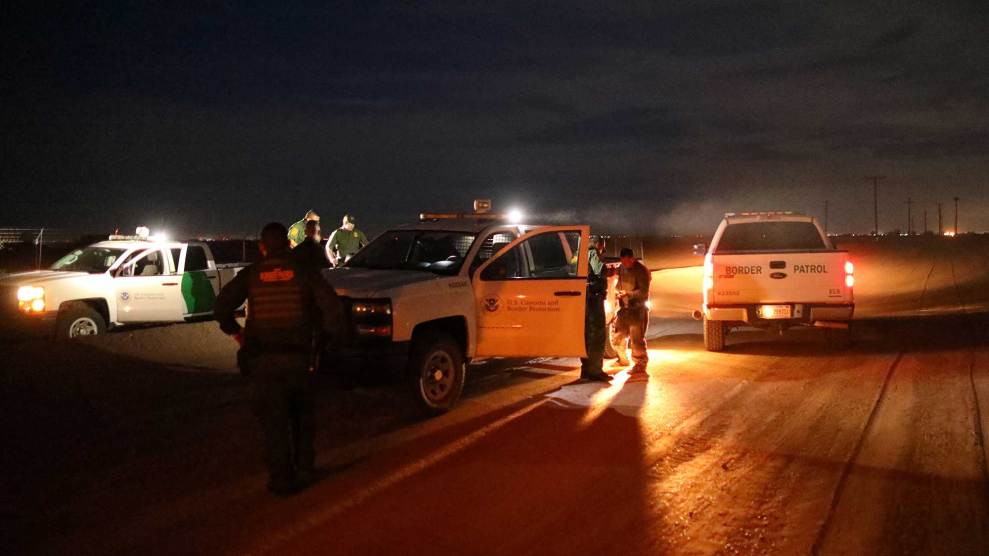
Refugees from the caravan atop the Mexican rail line known as "La Bestia" (The Beast) Cristobal Sanchez
Last weekend, dozens of refugees who participated in a caravan that traversed Mexico to seek asylum in the United States, presented themselves at the San Ysidro port of entry in Tijuana and were admitted into the United States. Planned by a coalition of Mexican and American organizers, the caravan began in early April at the Guatemala-Mexico border. Its goal was to raise awareness of the dangers migrants face while traveling through Mexico as well as the reportedly widespread practice of Customs and Border Protection (CBP) agents illegally turning back refugees at the border. The group reached Tijuana last weekend after suffering a variety of threats and setbacks during nearly four weeks on the road.
In total, 78 asylum seekers were admitted during the weekend border crossing. The group included men, women, and children, most of whom were fleeing violence in Central America. Alex Mensing, one of the caravan organizers and a paralegal at the University of San Francisco’s Immigration and Deportation Defense Law Clinic, says that several families were released on parole to family members and sponsors in the country, while the rest have been sent to immigration detention centers or are in the custody to of the Office of Refugee Resettlement.
Only one asylum seeker was turned away at the border, Mensing says. A child with US citizenship crossing with his Guatemalan father was sent back to Mexico when border patrol learned his mother was still there. “Once they found out the mother was in Tijuana, they called her and told her that if she didn’t come get her son, they would take the child away and put him in foster care.” (Under international law, separating children from their parents usually should be avoided, according to the detention guidelines outlined by the United Nations High Commissioner for Refugees.) There were also allegations of refugees receiving poor treatment in CBP custody. Los Angeles resident Dolores Ramirez, who had relatives traveling in the caravan, told the local news outlet KPBS that her relatives were “only getting 10 minutes to eat, they have no blankets, they’re sleeping on the floor in cells, they’re being yelled at… They shouldn’t be treated like animals, they’re not animals, they didn’t cross the border illegally, they’re seeking help.”

Not all of the refugees who turned themselves in last weekend had traveled with the caravan. Several, having already been turned back by CBP multiple times, waited in Tijuana to cross with the group.
According to multiple human rights attorneys and a new report from Human Rights First, CBP has been turning away more asylum seekers since the election of President Donald Trump. “In the wake of the election and President Trump’s January executive orders relating to refugees, CPB agents have in some cases claimed the United States is no longer accepting asylum seekers,” Human Rights First reports. By blocking refugees, CBP may be putting them in direct danger. The report adds, “Cartels, smugglers, and traffickers—who control areas around border crossings and wait outside some ports of entry where they see migrants and asylum seekers as easy prey—have kidnapped, raped, and robbed asylum seekers wrongly turned away by the U.S. government.”
B. Shaw Drake, a fellow at Human Rights First and one of the authors of the report, has heard reports that CBP officers turned away two Eritrean refugees on the day after the caravan members turned themselves in. “We had hoped our report and all the media attention would have put them on notice,” Drake says. “But we continue to hear about those cases happening.”
Mensing says that while the caravan was by and large a success, he has concerns that the practice of turning back asylum seekers will continue unchanged. “There’s no doubt in mind that of those 78 people, most if not all of them would have had difficulty being processed if it had not been for the caravan. And clearly, if they were back to rejecting people on Monday, it was not a lasting thing, either.”













